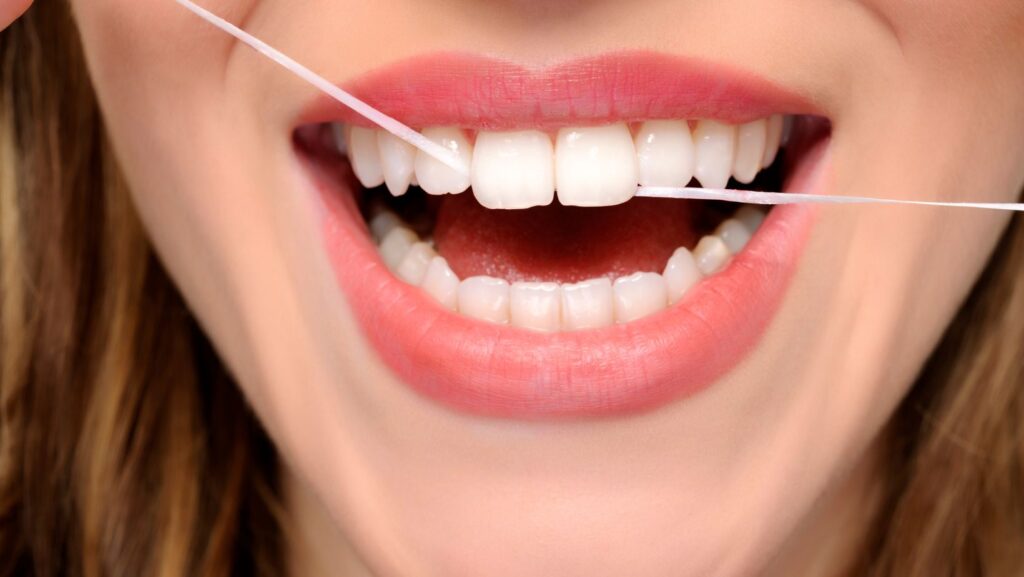Introduction
When we think of a healthy smile, we often focus on the physical aspects—clean teeth, fresh breath, and proper bite alignment. But what many people overlook is the profound connection between oral health and mental well-being. A bright, healthy smile does far more than light up your face; it can lift your mood, build your confidence, and influence how you feel about yourself in almost every area of life.
Oral health and mental health are intricately linked. From the way you speak and eat to how you engage socially or handle stress, your dental condition affects your psychological state in ways both subtle and significant. In this article, we’ll explore the fascinating ways that taking care of your smile contributes to better emotional and mental wellness—and why investing in oral health is also an investment in a healthier, happier you.
Why your smile shapes your self-image and confidence
Your smile is one of the first things people notice about you. It’s tied to your identity, sense of self-worth, and how you present yourself to the world – London View of Suit Tailors.
When your teeth are healthy and well-maintained, you’re more likely to feel confident in social interactions, interviews, and public settings. Conversely, if you’re self-conscious about crooked, discoloured, or missing teeth, that discomfort can hold you back.
People with healthy smiles tend to:
- Smile more often in photos and public settings
- Speak more clearly and confidently
- Feel more comfortable meeting new people
- Engage more openly in conversations
A poor smile can create an invisible barrier to self-expression. It leads to hesitance, withdrawal, and sometimes even avoidance of social events. By improving your smile, you’re also improving how you feel about yourself—one of the most powerful contributors to mental well-being.
How oral discomfort affects emotional regulation and stress levels
Dental pain doesn’t just stay in your mouth—it can significantly affect your emotional state. Chronic discomfort from untreated cavities, jaw issues, or gum infections can raise stress hormones in the body and reduce your threshold for frustration or emotional regulation. Even mild tooth pain, when persistent, can drain your mental energy and affect your mood.
Common emotional effects of ongoing dental issues include:
- Increased irritability or mood swings
- Trouble focusing or completing tasks
- Lowered patience with everyday stressors
- Sleep disturbances leading to mental fatigue
Addressing oral pain through proper care relieves more than just physical symptoms. It also reduces emotional tension, giving you more space to focus on relationships, work, and hobbies with a clearer and calmer mind.

How poor dental health can increase anxiety and depression symptoms
There’s growing evidence linking poor oral health to elevated risks of depression and anxiety. People who experience tooth loss, severe gum disease, or chronic bad breath may withdraw from social situations out of shame or fear of judgement. This isolation can intensify feelings of sadness or worthlessness.
Poor dental health also contributes to:
- Embarrassment in professional or dating situations
- Anxiety before meals or public speaking
- A sense of losing control over personal appearance
- Reduced motivation to engage with others
This emotional toll is often under-acknowledged. While the physical damage from untreated dental issues is clear, the psychological impact can be even more harmful. Seeking dental support early preserves your teeth and protects your emotional resilience.
Why smiling boosts brain chemistry and daily mood
Smiling doesn’t just reflect happiness—it can create it. When you smile, your brain releases a cascade of feel-good chemicals such as dopamine, serotonin, and endorphins. These natural mood boosters help reduce stress, fight anxiety, and improve your overall outlook—even if your smile is initially forced – Lashkaraa.com
The benefits of frequent, genuine smiling include:
- Improved mood throughout the day
- Lower blood pressure and reduced stress
- Increased ability to cope with negative emotions
- Stronger feelings of connection with others
However, people with dental problems often avoid smiling, missing out on these mood-enhancing effects. You’re not just changing your appearance by addressing issues that cause you to hide your smile—like discolouration, crowding, or missing teeth. You’re activating natural mental health benefits every time you show your teeth.
How a healthy smile supports better social connection and relationships
Relationships are essential for mental health, and how confident and open you feel influences your ability to connect with others. A healthy smile makes initiating conversations easier, laughing without self-consciousness, and expressing yourself authentically. It creates a positive first impression and signals approachability and warmth.
People with dental confidence are more likely to:
- Attend social gatherings and networking events
- Form friendships more easily
- Express affection or humour without hesitation
- Feel accepted and respected in group settings
In contrast, those embarrassed by their teeth may speak less, cover their mouth when laughing, or avoid eye contact—all of which can create a barrier to forming meaningful connections. Strengthening your smile can unlock stronger bonds and emotional fulfillment.
How cosmetic dental care improves both aesthetics and emotional wellbeing
Modern dentistry offers more than health maintenance—it provides transformative cosmetic options that significantly improve your smile and mental outlook. Procedures like whitening, veneers, and alignment enhance your appearance and reduce anxiety about being judged or misunderstood.
Benefits of cosmetic care for mental wellness include:
- A renewed sense of control over your appearance
- Boosted confidence in professional and personal life
- Relief from long-held insecurities about your smile
- Motivation to maintain overall self-care routines
For many patients, undergoing cosmetic dentistry treatments is a turning point. These treatments help correct visible flaws, enhance facial harmony, and rebuild confidence—ultimately contributing to a more positive self-image and emotional balance.
How oral hygiene routines support mindful habits and structure
Maintaining good oral hygiene isn’t just about brushing and flossing—it’s a daily habit that supports structure, discipline, and self-care. These small routines reinforce your sense of agency and help establish healthier mental patterns, especially during stress or instability.
Oral care routines can:
- Promote mindfulness through focus on self-care
- Act as anchor points in your daily schedule
- Reinforce a sense of accomplishment and routine
- Encourage attention to other aspects of health and wellness
When people neglect their oral health, they often neglect other forms of self-care. In contrast, showing up consistently for your dental hygiene can reinforce positive habits and support emotional stability – Healing Hands Chiropractic.
Why prevention and early dental care reduce mental strain long-term
Putting off dental appointments leads to more stress over time. Fear of pain, unexpected costs, or the shame of visible damage can become overwhelming and mentally exhausting. But early intervention, often guided by an experienced dental surgeon in Schaumburg, allows you to stay ahead of problems—reducing anxiety, preventing emergency visits, and maintaining peace of mind.
Early dental care helps you:
- Avoid escalating treatment anxiety
- Minimise fear of social embarrassment
- Keep healthcare costs manageable
- Stay empowered about your overall health
The mental clarity and security of knowing your smile is healthy cannot be overstated. It gives you the freedom to focus on what truly matters in life without dental problems constantly weighing on your mind – Diehl Plastic Surgery – Female Labiaplasty Surgeon
Conclusion
A healthy smile is more than a cosmetic feature—it’s a gateway to emotional strength, social ease, and mental clarity. From building self-esteem to boosting brain chemistry, oral health influences our moods, habits, and relationships in powerful and often overlooked ways. When you care for your teeth, you also care for your mind.
Investing in your smile—whether through hygiene, early treatment, or cosmetic improvements—can bring transformative benefits to your appearance and how you feel and function each day. The connection between a strong smile and a strong mind is real, and the good news is that it’s within your control. Every step you take toward a healthier smile is toward a healthier, more confident, and more balanced version of yourself.


